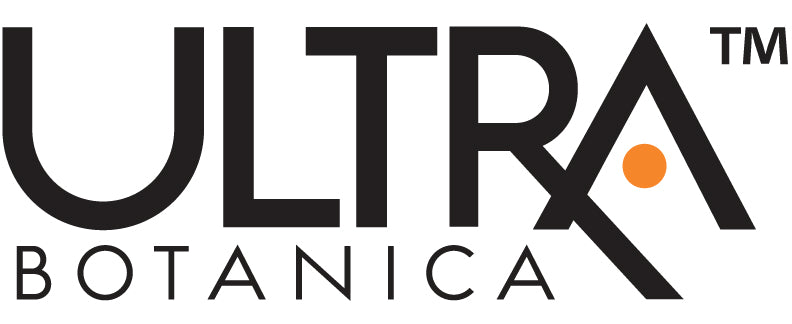Heart disease remains a leading cause of death globally, to the tune of 600,000 deaths per year, just in America. If you’re seeking practical heart health tips to improve your heart’s well-being, you’re in the right place.
This isn’t about medical jargon; it’s about simple, everyday changes you can make during February’s Heart Health Month. ♥️
Boost Your Heart Health: 15 Powerful Heart Health Tips
This post offers fifteen heart health tips you can start using today. Small changes can yield big results for your heart, including lowering cholesterol levels, slowing biological aging, and promoting a healthy heart.
1. Embrace Laughter for a Healthier Heart
A good laugh feels great—and it’s great for your heart, too! Laughing increases blood flow, strengthens the heart, and lowers blood pressure by relaxing blood vessels.
It also reduces stress hormones like cortisol, which in excess can harm your heart over time. Less stress means better heart health. Incorporating laughter into your day is easy:
- Start your morning with a funny video or meme.
- Share a joke with a friend.
- Watch a comedy
- Play with a pet.
Laughter is free, fun, and contagious—so spread it around for a happier, healthier heart!

2. Prioritize Sleep for Heart Health
Sleep is essential for heart health. It allows your body and mind to recharge, giving your heart a break by lowering heart rate and blood pressure.
Chronic sleep deprivation can weaken the heart, raise blood pressure, and increase the risk of weight gain, diabetes, and serious heart issues.
Lack of sleep also triggers stress hormones like cortisol, which elevate blood sugar and promote fat storage—making weight loss harder and adding strain on the heart.
Most adults need at least seven hours of quality sleep. If you wake up feeling tired, you may need more. Prioritizing sleep is one of the simplest heart health tips—and it’s free!
To improve sleep, stick to a consistent sleep schedule, create a dark, quiet, and cool sleep environment, and unwind with calming activities like reading or warm baths in the evening. Avoid screens before bed, as blue light disrupts melatonin production.
If sleep problems persist, consult your doctor. Conditions like sleep apnea are linked to heart disease and may need treatment. Better sleep can be a game-changer for keeping your heart healthy.
3. Nurture Your Social Connections
Strong relationships benefit your heart by lowering blood pressure and lowering the risk of heart disease, while loneliness can be harmful, especially with age.
Think of friends and family as essential to heart health. Spend quality time with them, laugh, share stories, play games, and support each other.
Social connections boost both emotional and physical well-being. To build connections, join a club, volunteer, take a class, get to know your neighbors, or attend community events. Even a simple weekly phone call can make a difference.
If you’re feeling lonely, reach out. Many people feel the same, and small efforts can brighten both your day and theirs.
Investing in relationships takes effort, but it’s worth it. Strong social ties reduce stress, provide emotional support, and offer a sense of belonging—all crucial for heart health. Prioritizing connections is a simple yet powerful way to nurture both mind and body.

4. Exercise: Key to Enhanced Heart Health
Want a strong heart? Get moving! You don’t need to run marathons—just find activities you enjoy and stick with them. Exercise strengthens your heart, improves circulation, lowers blood pressure, and helps manage weight and cholesterol.
Doctors recommend 150 minutes of moderate exercise (like walking, swimming, or biking) or 75 minutes of vigorous activity (like running or dancing) each week.
Break it up if needed—short bursts of movement count! Take the stairs, park farther away, or walk on your lunch break. A workout buddy can boost motivation and accountability.
If you have health concerns, consult your doctor for safe options.
Exercise lowers your risk of heart disease and stroke while boosting mood and energy. So, get moving—your heart will thank you!
5. Indulge in a Little Dark Chocolate
Dark chocolate with at least 70% cacao is rich in flavonoids and plant-based antioxidants that support heart health. These compounds help lower blood pressure, and relax blood vessels, key factors in preventing heart disease.
Enjoying dark chocolate in moderation can be a heart-friendly choice, but portion control is important. A small square or two is enough to reap the benefits without adding excess sugar and calories, which could work against your health goals.
Savoring a little dark chocolate each day is a simple and enjoyable way to support heart health. Just remember, it should complement an overall heart-healthy diet filled with other healthy foods.
6. Learn to Manage Your Stress
Managing stress is essential for heart health, as chronic stress can raise blood pressure, cause inflammation, and lead to unhealthy habits like overeating, drinking, and smoking—all of which are risk factors for heart disease.
Excess cortisol and adrenaline from stress strain the cardiovascular system by increasing heart rate and blood pressure.
Stress-reducing activities like meditation, yoga, deep breathing, and regular physical activity help lower these levels and promote relaxation.
Strong social connections, enjoyable hobbies, adequate sleep, and good time management can reduce stress. Prioritizing stress management protects your heart while enhancing mental and emotional well-being.

7. Slash Your Sugar for a Heart Healthy Diet
Too much sugar significantly increases the risk of diabetes, heart disease, high blood pressure, and obesity. Excess sugar fuels inflammation, atherosclerosis, and high triglycerides while lowering “good” HDL cholesterol.
Over time, chronic sugar intake leads to insulin resistance, raising the risk of diabetes—a condition that accelerates artery damage and circulation problems, further heightening heart attack risk.
Even small reductions in sugar can have a big impact on your health. But sugar often hides in processed foods, sugary drinks, and even seemingly healthy items like flavored yogurt.
How to Cut Back on Sugar:
- Read labels – Avoid added sugars like corn syrup, sucrose, and dextrose.
- Limit sugary drinks – Choose unsweetened tea, sparkling water with fruit, or plain water with lemon or lime slices.
- Choose natural sweets – Berries provide fiber and antioxidants, while dark chocolate (in moderation) benefits heart health.
- Cook at home – Control ingredients and reduce added sugar in recipes.
- Watch condiments – Ketchup, BBQ sauce, and dressings often contain hidden sugar; homemade options with reduced sugar are better.
- Be wary of “low-fat” foods – These often replace fat with sugar to enhance flavor.
Small, consistent changes can make a big difference. Gradually cutting back on sugar benefits your heart—and your taste buds will adjust over time!
8. Use Olive Oil Instead of Seed Oils
Many people use seed oils like canola, sunflower, or corn oil, which are high in omega-6 fatty acids. While some omega-6 is beneficial, excess intake can trigger inflammation linked to heart conditions. And due to its prevalence in processed foods, most people get way more omega-6s than is healthy.
Olive oil is rich in omega-3s, monounsaturated fats, and polyphenols. These healthy fats protect against oxidative damage and lowers bad cholesterol (LDL), reducing heart event risks.
Use olive oil for salad dressings, drizzle it over bread or your favorite dishes. However, for high-heat cooking, use avocado oil instead, due to its higher smoke point. When buying olive oil, choose extra virgin in a dark bottle to preserve its nutrients.

9. Moderate Your Alcohol Consumption
Occasional drinking may be fine (although some emerging research even questions that), but excessive alcohol harms your heart by raising blood pressure, triggering atrial fibrillation, and weakening heart function.
Moderation is key… men should limit intake to two drinks or less per day, and women to one or less. A standard drink equals 12 oz of beer, 5 oz of wine, or 1.5 oz of distilled spirits.
Heavy drinking weakens the heart muscle, making it harder to pump blood, which can lead to heart failure. While some research suggests mild benefits of alcohol use, the risks of excessive drinking far outweigh any potential upside.
Cutting back (or, better yet, cutting it completely out) supports better heart health.
10. Monitor Your Key Heart Numbers
Monitoring key heart numbers helps catch issues early and aids heart health. Talk to your doctor about tracking these regularly:
- Blood Pressure: Measures blood force against artery walls. High blood pressure (hypertension) strains the heart and increases heart attack and stroke risk. A healthy target is around 120/80 mmHg but check with your doctor for your ideal range.
- Cholesterol: Balance is key—high HDL (“good”) and low LDL (“bad”) cholesterol help prevent artery blockages and heart disease. Some holistic doctors believe that cholesterol by itself is not a major contributor to heart attack risk, but it may still be a factor to consider.
- Blood Sugar: High levels are often linked to diabetes, damaged blood vessels and increased heart disease risk. HbA1c above 6.5 indicates diabetes; below 5.7 is normal. Anything between those numbers is considered pre-diabetes.
- Body Mass Index (BMI): Excess weight strains the heart. Losing just 5-10% of body weight can improve heart health.
- Triglycerides: High levels increase heart disease risk, especially combined with high cholesterol or blood sugar. A simple blood test can measure them.
- Waist Circumference: Extra belly fat raises heart disease risk. Keep waist size under 35″ for women and 40″ for men for better heart health.
Regularly tracking these numbers with your doctor helps you stay proactive and lower heart disease risks.

11. Manage Your Weight for Optimal Heart Health
Excess weight, especially around the belly, increases the risk of high blood pressure, high cholesterol, and type 2 diabetes—all major contributors to heart disease.
However, even a 5-10% weight loss can significantly lower these risks and improve overall heart health. Regular physical activity is key to managing weight and has direct benefits for your heart.
Find exercises you enjoy and stay consistent. Whether it’s walking, swimming, or dancing, movement helps keep your heart strong and supports weight loss.
Healthy eating habits are just as important. Focus on fruits, vegetables, whole grains, nuts, and lean proteins like fish, chicken, and beans. Limit processed foods, sugary drinks, and seed oils, which contribute to weight gain and inflammation.
Making small, gradual changes is the best way to build lasting habits. Start with simple steps, like adding a 15-minute walk to your daily routine or replacing sugary drinks with water.
These small adjustments add up over time, making it easier to adopt healthier habits for the long run. Weight management is a lifelong journey with ups and downs. Instead of aiming for perfection, focus on consistency and sustainable choices.
Following dietary approaches like the DASH or Mediterranean diet can help maintain a healthy weight while protecting your heart.
12. Steer Clear of Smoking and Vaping
Smoking and vaping are terrible for your heart, yet many struggle to quit. However, quitting is one of the best things you can do for your heart.
Nicotine in cigarettes, cigars, pipes, and e-cigarettes raises blood pressure and heart rate, putting long-term stress on your heart.
Smoking also damages blood vessels, reduces good cholesterol, increases plaque buildup, and raises the risk of blood clots that can lead to heart attacks.
Vaping is not a safe alternative. E-cigarettes contain harmful chemicals that damage the heart and lungs while also increasing heart rate and blood pressure.
If you smoke or vape, talk to your doctor about quitting. Effective options include nicotine replacement therapy and counseling. Quitting isn’t easy, but every smoke-free day is a victory for your heart.

13. Maintain Good Oral Hygiene
Studies link gum disease to increased inflammation, a key factor in atherosclerosis.
Periodontitis, caused by bacterial buildup around the gums, can trigger systemic inflammation, which may contribute to fatty plaque formation in arteries, raising the risk of heart attack and stroke.
Poor oral health and heart disease often share common risk factors like smoking, poor diet, and diabetes. Maintaining good oral hygiene—brushing twice daily, flossing, and regular dental checkups—is a simple way to protect both oral and heart health.
14. Be Aware of Your Unmodifiable Risks
Some heart health risks are set in stone. We can’t change them. But knowing about them can help us make healthier choices to compensate for them.
Age – As we get older, our hearts change. This makes us more likely to get heart disease. But a healthy lifestyle can help keep our hearts stronger as we age.
Gender – Heart disease is often seen as a men’s health issue. But it’s a top killer of women too. While men may have higher survival rates immediately after a heart attack, women often face worse long-term outcomes. Women are more likely to experience repeat heart attacks, heart failure, and poorer quality of life after a heart attack.
Family history – Did your parents or grandparents have heart disease? If so, your risk may be higher. This doesn’t mean you’ll get it. But it does mean you should pay extra attention to your heart health.
Discuss your family’s health history your doctor. Although you can’t control these unmodifiable risk factors, knowing them is important so you can make better choices.

15. Try Beetroot for Blood Pressure Management
High blood pressure is a serious risk factor, but something as simple as beetroot can help. This root vegetable is rich in nitrates, which your body converts into nitric oxide.
This compound relaxes and widens blood vessels, improving blood flow and lowering blood pressure.
Studies show that drinking beetroot juice can reduce both systolic (top number) and diastolic (bottom number) blood pressure, sometimes within hours. One study suggests 8 ounces daily may help.
You don’t have to drink beet juice to get the benefits. Roasted beets make a great salad topping or side dish, and beet greens are nutrient-packed—sauté them like spinach or blend them into smoothies.
Beetroot powder is an easy addition to yogurt or drinks, and supplements offer a no-prep option. Adding beetroot to your diet is a simple, tasty way to support heart health and manage blood pressure naturally.
Conclusion
Taking care of your heart and slowing biological aging doesn’t have to be difficult. Small changes can make a big impact, whether you’re improving, maintaining, or protecting heart health.
Incorporate heart-healthy foods like omega-3s, nuts, and seeds while cutting back on processed foods. Stay active—regular exercise is key. If you smoke, quitting is one of the best steps you can take.
Managing stress and prioritizing sleep also support heart health by reducing strain on your body. Before making changes, consult your doctor.
Here’s to a healthier heart—not just during February’s Heart Month, but for life!

Frequently Asked Questions
How can I make my heart stronger?
Focus on regular physical activity, aim for at least 150 minutes of exercise per week, and eat a heart-healthy diet that’s low in sugar and high in nutrient-rich whole foods. Prioritize good sleep, manage stress, and avoid smoking or vaping.
Laughter and strong social connections also help improve heart function, while reducing stress on the body.
What are the top things to avoid to improve heart health?
To improve heart health, avoid smoking, excessive alcohol consumption, and excessive sugar intake.
Also, steer clear of processed foods, seed oils, and unhealthy fats. Reduce stress and get sufficient sleep, both of which are crucial for maintaining a healthy heart.
How do I monitor my heart health?
To monitor heart health, track key numbers like blood pressure, cholesterol, blood sugar, BMI, and waist circumference. Regular check-ups with your doctor will help assess these levels and identify potential issues early.





Share:
Unveiling Quercetin Health Benefits: Nature’s Antioxidant
It’s Mid-Winter… Boost Your Natural Immune Defense Today